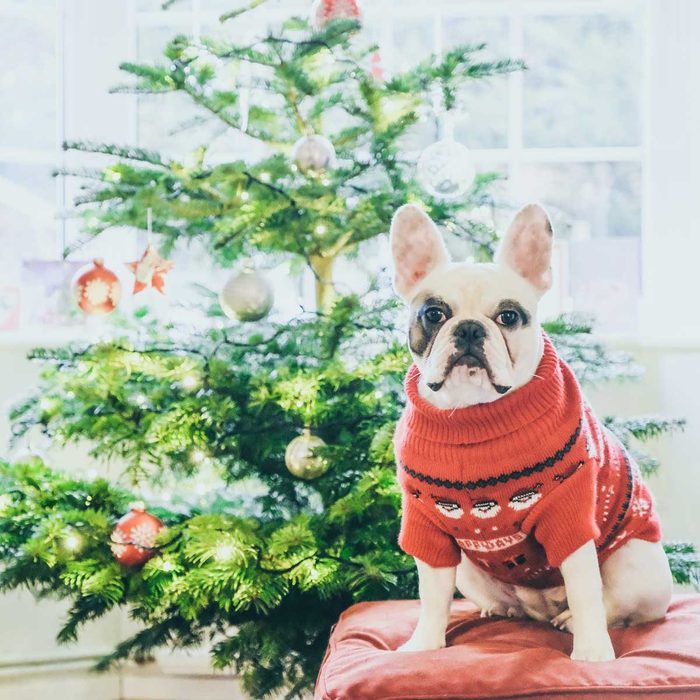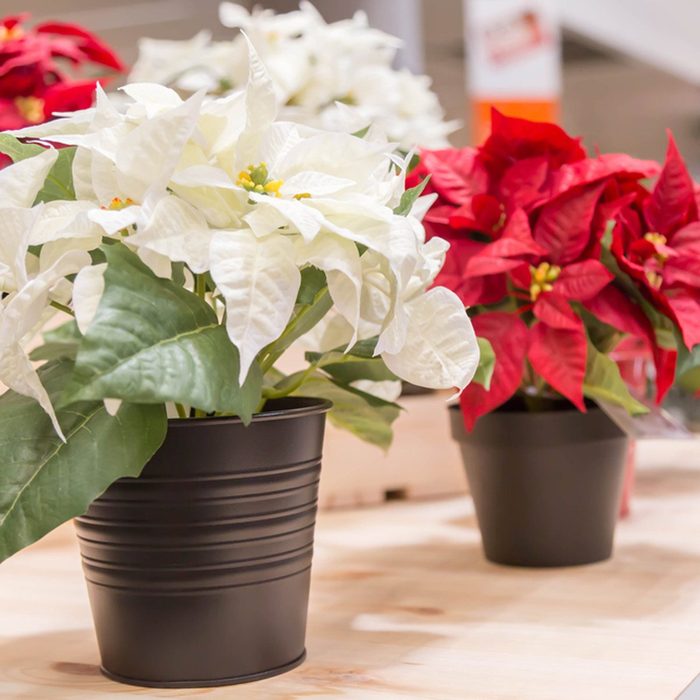
Toxic Holiday Plants
Holiday plants like poinsettia, holly and mistletoe are pretty at Christmas, but dangerous if a dog consumes them, says Dr. Jamie Richardson, a licensed veterinarian and medical chief of staff at Small Door Veterinary. “The chemicals found in the leaves and berries can cause vomiting, diarrhea and breathing difficulties even if just a small amount is consumed,” she says. The spiny leaves on holly can cause gastrointestinal irritation, like abdominal pain and excessive drooling. Richardson says to call your vet immediately if your dog has consumed any toxic plant.
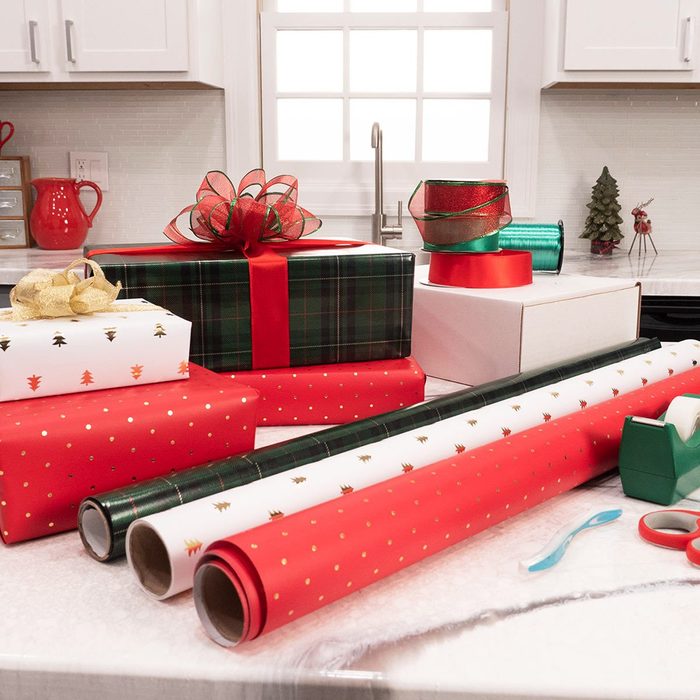
Wrapping Supplies
Gift wrap, ribbons, bows and confetti look like fun for a dog to play with, but are dangerous if ingested. They can easily bunch in the stomach or wrap around the intestines, causing serious and potentially fatal harm to your pet. “Don’t let your pet play with these items and put away any gift-wrapping materials right after you finish wrapping,” says Richardson. “Seek immediate veterinary attention if you think your pet may have swallowed something.”
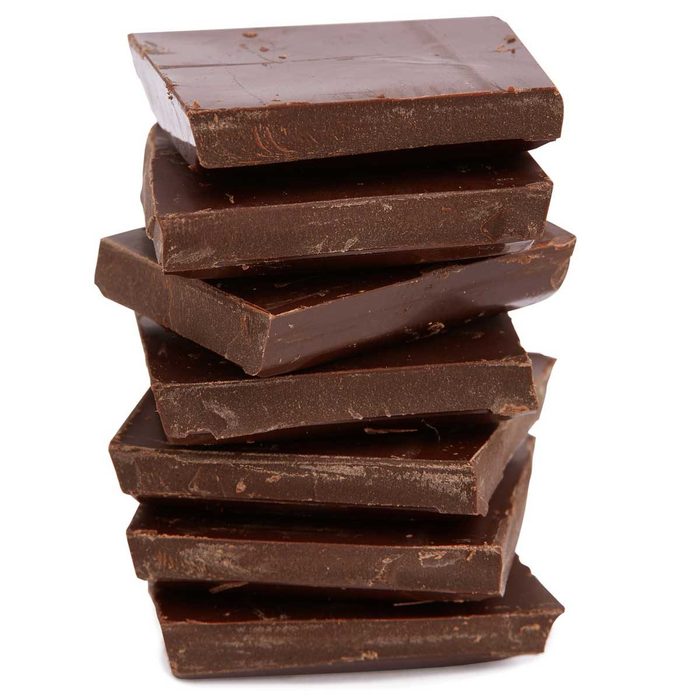
Sweet Treats
Indulgent holiday treats can be life-threatening to dogs if consumed. Chocolate contains methylxanthines such as caffeine and theobromine, which dogs are particularly sensitive to, says Dr. Rachel Barrack, a licensed veterinarian and certified veterinary acupuncturist. “Signs of chocolate toxicity include vomiting, diarrhea, increased heart rates, increased temperature, muscle rigidity and even seizures, cardiac failure and coma,” she says. Candy and baked goods with artificial sweetener xylitol can also be toxic to dogs.
“Certain candies and cookies might contain nuts, many of which are also harmful for dogs,” says Richardson. “Watch for baked goods that contain grapes or raisins as even just a couple can lead to kidney failure in dogs.” Make sure to keep all sweet treats up high where dogs can’t get them. Contact your vet immediately if you think your dog has consumed any of these items.
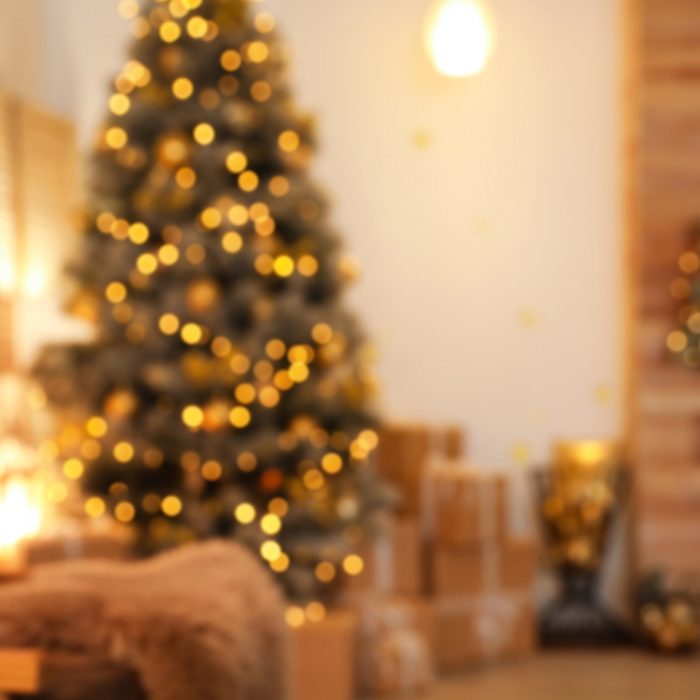
Christmas Tree
Christmas trees are beautiful to look at but pose risks to your dog. Whether it’s real or fake, make sure your tree is properly secured so it doesn’t fall and hurt your pet. Don’t let your pet drink from the tree stand water basin and don’t add anything to the water, in case you’re out of the room when you dog decides to take a sip. Also, stagnant water can cause bacteria to grow and cause serious stomach upsets for dogs if consumed. “Sweep or vacuum up the needles regularly, as they can be harmful if eaten,” Richardson advises. “They can also get stuck between your pet’s paw pads and cause irritation or pain.”
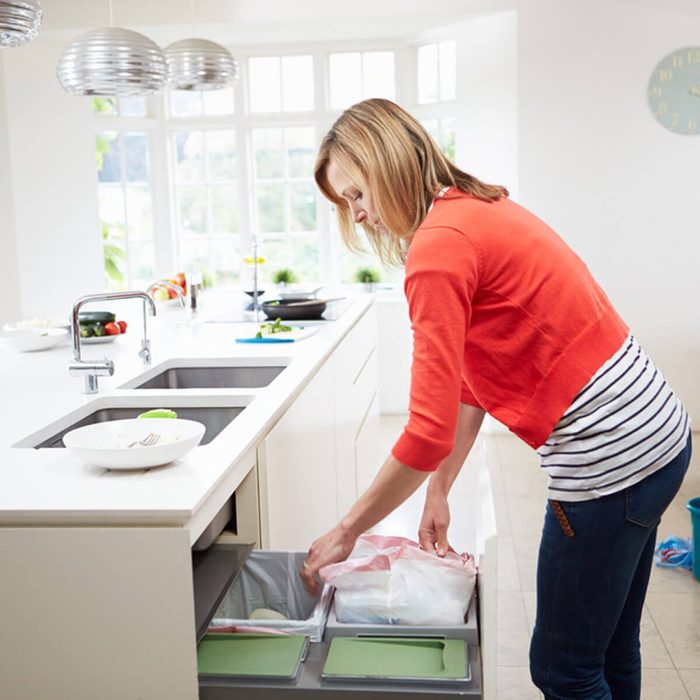
Meat, Bones and Gravy Left in the Trash
Trash filled with meat and bones is a dog’s dream. And while they may enjoy chewing a big bone, cooked meat bones can splinter and cause blockage or lacerations in the gastrointestinal tract, necessitating a surgical emergency. “Even just small amounts of fatty meat can cause pancreatitis, a potentially fatal disease,” says Richardson.
Gravy is also toxic to dogs. It typically contains lots of salt,and may contain onion and garlic that are poisonous to dogs. Keep the trash away from your dog and alert your vet if you suspect your dog consumed any of these items.
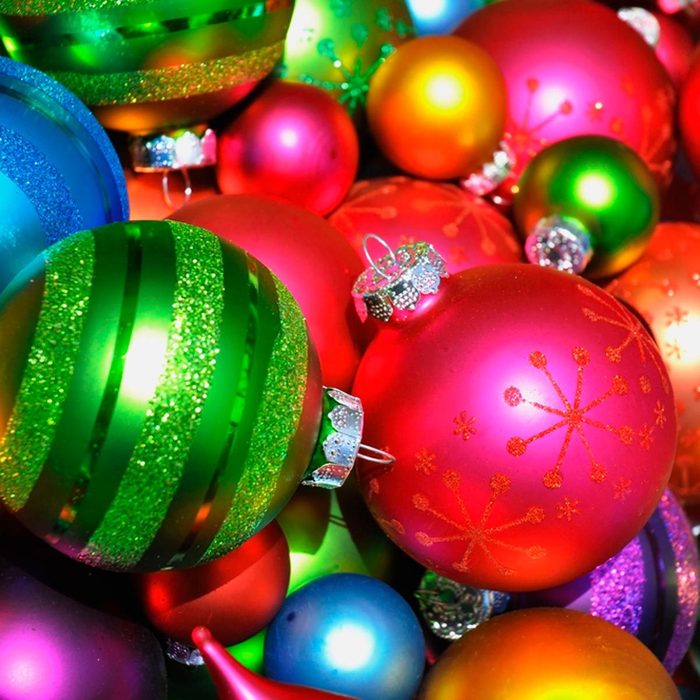
Ornaments
Glass ornaments can break and cut your dog’s paws or face. If ingested, they can also cause internal lacerations. Make sure ornaments are hung where your pet cannot reach them. Barrack says that snow globes and lights contain poisonous chemicals such as ethylene glycol—the same found in anti-freeze. If a dog ingests it, they appear drunk and experience acute kidney failure. They must be brought to the veterinarian immediately to be treated with an antidote.
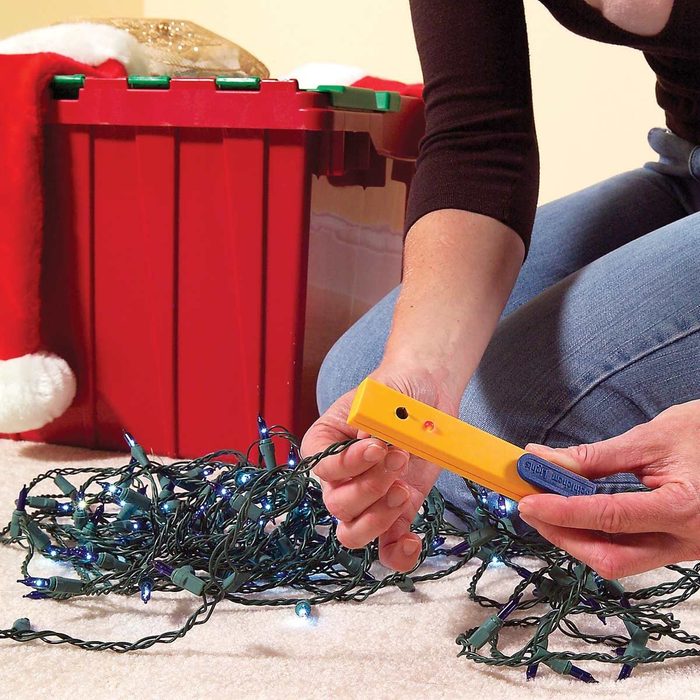
Electrical Cords and String Lights
During the holidays, electrical cords and string lights are everywhere. That puts dogs at risk for electrical shocks, seizures and burns, if chewed. And dogs risk strangulation if they get themselves wrapped up in those cords or light strings. Take care to make your holiday lights as pet-proof as possible. “Always supervise your pet when they’re in a decorated room,” says Richardson. “Tape down and secure wires and always turn off lights and unplug cords when leaving the house.” Contact your vet immediately if your dog gnaws on any wires.
(Related: 3 Ways Mindfulness Can Help You Get Through the Holiday Season)
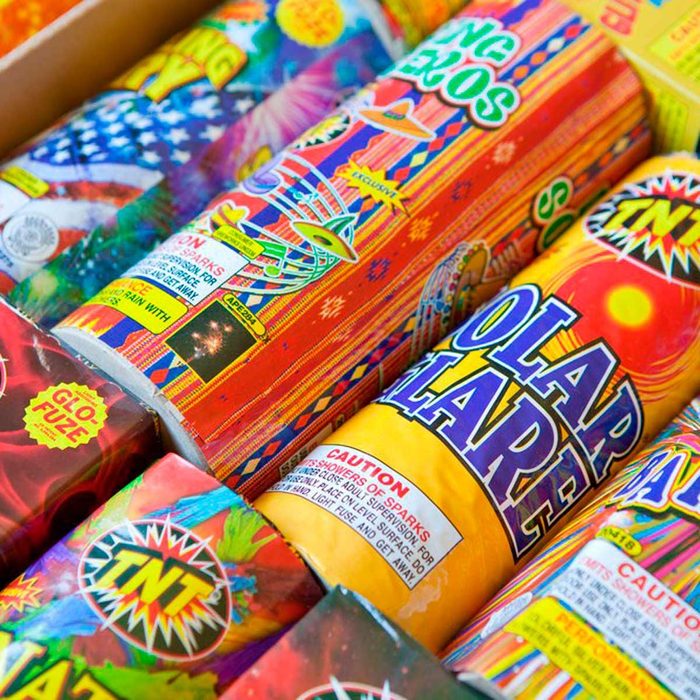
Fireworks
It’s well-known that fireworks scare dogs, but there’s no avoiding the loud cracks and booms on New Year’s. Fireworks are painful for a dog’s ears and can cause anxiety. Make sure your dog is secured in a safe space before the New Year countdown begins, even if you’re celebrating at home with your immediate household. “If your dog is particularly prone to anxiety, talk to your vet about calming aids, such as pheromone collars, anxiety-relieving shirts such as the Thundershirt, or anti-anxiety medication,” says Richardson.
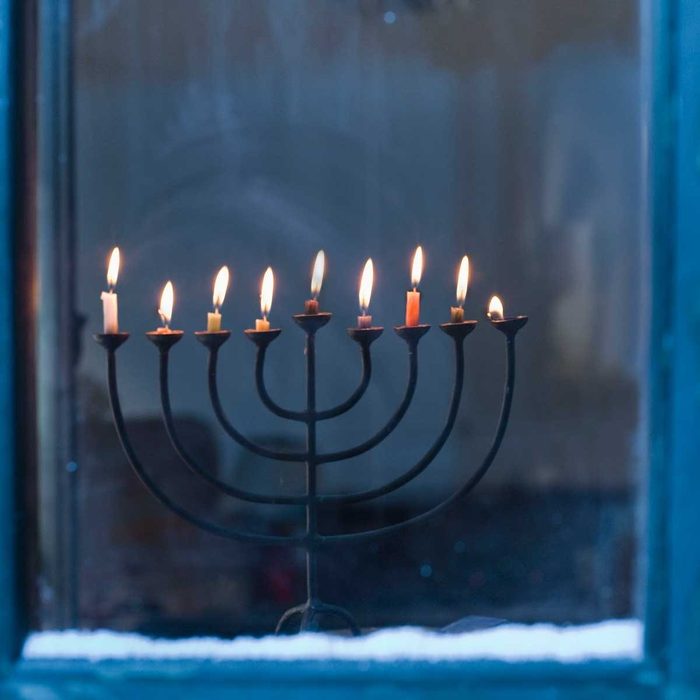
Hanukkah Menorah
Hanukkah is the festival of lights, but make sure your pet cannot come into contact with a lit menorah with real candles. Keep candles up high where a dog can’t reach or knock them down. Dog burns should be treated immediately with immersion in cold water. Obtain veterinary care quickly. (This warning goes for all lit candles, of course.)
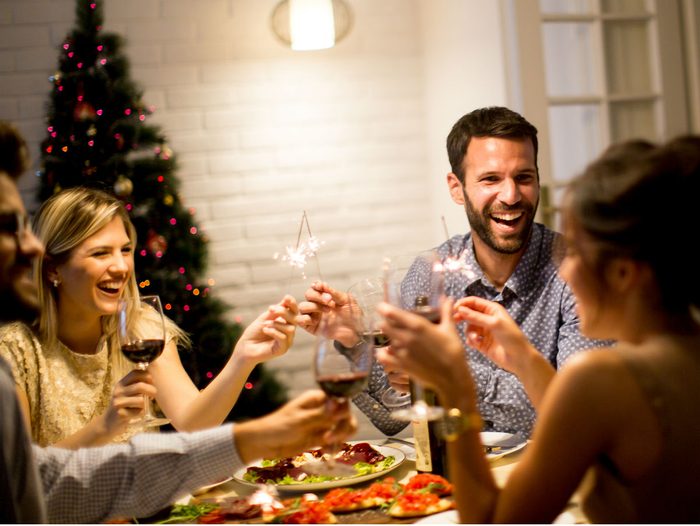
Holiday Visitors
Chances are your dog probably isn’t used to people coming in and out of your home. If you do have guests visiting this holiday season, they may leave the front door open, and your dog can inadvertently sneak out and get lost. “Make sure your dog has a safe quiet place to relax,” says Barrack. If your dog gets stressed out in a busy or loud house, consult with your veterinarian about possible medications to help your pet relax while you host the holidays.
